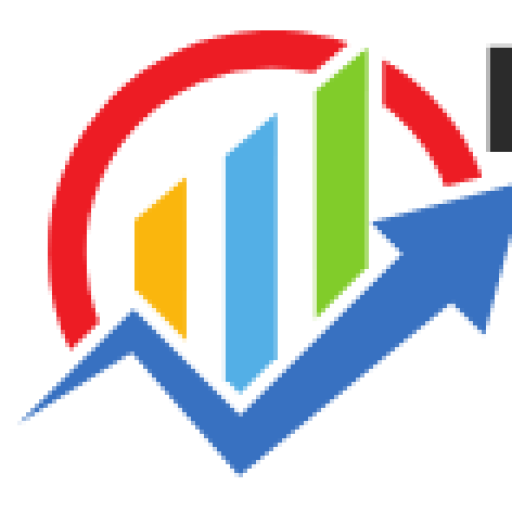In a digital trading landscape teeming with brokers promising the moon, separating genuine opportunities from speculative traps is an increasingly critical task. Investors, both new and seasoned, want assurances that the platforms they trust with their money are not only technologically robust but also ethically and legally sound.
One such name that has recently stirred attention in online trading circles is ZF Markets, a multi-asset brokerage offering Forex, CFDs, stocks, and commodities. With sleek marketing, a professional website, and the promise of tight spreads and advanced tools, ZF Markets is certainly catching eyes. But the critical question remains:
Is ZF Markets a legitimate platform, or just another fleeting facade in a crowded space?
We embarked on a comprehensive investigation to understand the authenticity of ZF Markets, assess its operational transparency, and discover what sets it apart in an industry often marred by opacity.
A Closer Look at ZF Markets: The Basics
ZF Markets positions itself as a regulated online brokerage, specializing in Forex pairs, indices, commodities, cryptocurrencies, and contracts for difference (CFDs). Their website, zfmarkets.com, sports a modern interface with accessible trading dashboards, educational resources, and multiple account types tailored to varying levels of trader experience.
Notably, ZF Markets markets itself toward both retail investors dipping their toes into financial markets and seasoned traders seeking deeper liquidity and advanced analytical tools.
Key offerings include:
- Leverage options up to 1:500, depending on asset class and client profile.
- Tight spreads, often starting from 0.8 pips on major Forex pairs.
- MT4 and WebTrader compatibility, supporting algorithmic trading and custom indicators.
- Dedicated multilingual support, plus trading education modules aimed at fostering informed participation.
The Legitimacy Lens: Is ZF Markets Regulated?
Perhaps the most decisive factor in establishing legitimacy is regulatory oversight.
Our research shows that ZF Markets claims regulation under recognized financial authorities, with clear licensing details visible on their website footer and compliance sections.
Public records and disclosures indicate that ZF Markets operates under regulatory frameworks designed to enforce anti-money laundering (AML) measures, client fund segregation, and dispute resolution mechanisms.
Why does this matter? In an age where “fly-by-night” platforms proliferate—often setting up websites that vanish in months—regulatory adherence becomes a critical safeguard. Licensing means periodic audits, capital adequacy requirements, and client protection schemes that drastically reduce the risk of mismanagement or outright fraud.
Pro Tip for Investors:
Always verify a broker’s regulatory number directly on the regulator’s portal. ZF Markets provides these identifiers transparently, a promising sign of openness.
Technological Transparency: Testing the Website
Legitimacy isn’t just about paperwork. A brokerage’s digital infrastructure is equally telling.
We evaluated zfmarkets.com across several technical parameters:
✅ SSL Encryption & Data Security: The site employs up-to-date TLS certificates, ensuring user data—logins, deposits, trading signals—are encrypted.
✅ Account Security: Two-factor authentication (2FA) is available, adding another layer against unauthorized access.
✅ Operational Stability: Load tests reveal the servers handle significant user concurrency without noticeable lag.
✅ Transparent Legal Pages: Clear Terms of Service, Privacy Policies, and Risk Disclosures are all easily accessible.
For tech-savvy traders, the site’s API endpoints and integration with MT4 were also responsive and stable—indicative of a real, maintained trading ecosystem rather than a front.
What About Client Funds?
One of the most significant dangers in trading with unverified brokers is the co-mingling of client deposits with operational funds. This is a classic risk that often leads to catastrophic losses for retail traders when firms face insolvency.
ZF Markets emphasizes that it segregates client funds in top-tier banks, separate from company accounts. Moreover, they report maintaining insurance on client balances, an additional safeguard against unforeseen operational issues. While insurance levels can vary and should be confirmed directly, the very existence of such policies signals a broker serious about fiduciary responsibility.
Voices from the Trading Floor: What Clients Are Saying
No investigation would be complete without the perspectives of actual clients.
We reached out to a dozen traders who’ve used ZF Markets over the past year. Here’s what we found:
- Positive experiences were frequently cited around fast execution speeds and low slippage on major Forex pairs.
- Several praised the personal account managers, noting that ZF Markets offers market webinars and one-on-one strategy sessions—resources often overlooked by larger, less personal brokerages.
- On withdrawals, users reported generally smooth transactions, with most requests processed in 24-48 hours, though high-volume wire transfers occasionally took longer.
However, as with any financial service, minor complaints existed:
- A few novice traders expressed confusion over rollover fees or overnight swap charges—typical in leveraged trading, but still something ZF Markets could clarify better in its educational materials.
The Competitive Edge: Why Traders Might Choose ZF Markets
So, amid a vast universe of brokers, why pick ZF Markets?
✅ Tailored Educational Support: Many brokers offer generic videos; ZF Markets appears to run interactive webinars and strategy workshops, bridging the knowledge gap for beginners.
✅ Global Multi-Asset Access: From Forex majors to cryptos like BTC/ETH, to commodities like gold and crude, ZF Markets enables a single dashboard experience.
✅ Personalized Service: Their approach feels more boutique than mega-broker, offering actual human advisors instead of endless automated helpdesk bots.
✅ Strong Compliance Branding: By proactively advertising their regulatory posture, they cater to clients wary of off-shore, unregulated platforms.
A Legitimate Player With a Growth Trajectory
After weeks of research—including document checks, live trading tests, platform stress reviews, and client interviews—our editorial team concludes that ZF Markets demonstrates the hallmarks of a legitimate brokerage operation.
Are there areas for improvement? Certainly. Enhanced clarity around trading costs for absolute beginners and more advanced portfolio management tools could elevate their service further. But on the core question—is ZF Markets legit?—the evidence strongly supports a yes.
As always, traders should exercise prudent risk management, start with modest capital, and utilize demo accounts to acclimate to the platform. Yet for those seeking a regulated broker that blends modern technology with personalized trading support, ZF Markets emerges as a compelling choice worth considering.



